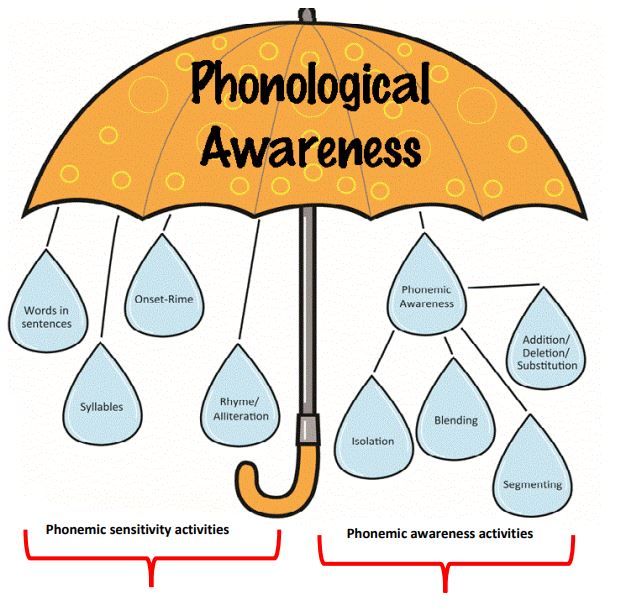I recently listened to a webinar by Dr Susan Brady and there some really important points I wanted to summarise for busy teachers.
Focus what is supported by evidence to accelerate learning
We are now racing against time to reverse the learning loss that took place over COVID. It is so important that we focus on what research tells us will help children learn to read and discard, or postpone the elements that don’t. Many reading instruction programmes include a large unit of phonemic sensitivity activities that precede the teaching of phonemic awareness and phonics. According to Dr Susan Brady this is wasting precious time on activities that don’t enhance learning to read and may even impede it.

What is phonemic sensitivity?
Under the umbrella of phonological awareness there a number elements. The larger elements are whole words in speech, alliteration, rhyme, onset and rime and syllables. The other elements address the smallest units of sound in words – phonemes: segmenting, blending and manipulating phonemes (adding, deleting, and swapping sounds in words).
Why we should ditch (or postpone) phonemic sensitivity activities?
According to Dr Susan Brady there is misconception that children develop phonemic awareness through a ‘top down’ journey, first developing an awareness of bigger unit of sounds in words, and only the then smaller units. This is incorrect. She argues that numerous studies have shown that phonemic awareness must be taught by explicit teaching of phonemes (and not through syllables or rhyme) and is especially effective when taught with letters and handwriting activities, which secure the language neural links in the brain. Dr Brady also claims that some children can get stuck on syllables and find it very difficult to move on to phonemic awareness.
Should we ditch teaching syllables and rhyme altogether?
No. Syllables are really important for learning to read longer words and are essential, but they should come later, once the learner begins to read and spell longer words. So we need to make a shift to teaching children about syllables later in the programme. Rhyme is also important for developing literacy genres like poetry – but should not precede phonemic awareness.

Should phonemic awareness be done with letters?
Yes. This is more efficient and actually helpful. We now know that our working memory (limited to only a few items of information) can overload when we try to manipulate new information that is not embedded in long-term memory. Dr Brady suggests that teaching children phonemic awareness with letters is not only more effective, as the learner has a visual representation of the sounds, but teaches children about the alphabetic principle (how letters represent sounds in speech). She asserts that this is also kinder for children who struggle to hear sounds or to hold them in their heads (dyslexics).
Why is this a question of equity?
Dr Brady discusses research done in 2019 in New Zealand with children who were attending schools in disadvantaged communities. Of the children who participated 41% were European, 25% Maori and others were Pacifica children (from other islands in the region). They had low level language and no awareness of initial phonemes.
The teachers provided a 20 hour intervention at the phoneme level. Typically, Maori and Pacifica children would not do as well as European children, with boys lagging behind girls. By the end of Kindergarten these children had made real gains in phonemic awareness, they were able to decode new words and, moreover, there was no difference between the achievement of boys and girls or between the ethnic groups.
So in short – what does Dr Susan Brady recommend?
- Get straight to phonemic level work
- Include Letters
- Include handwriting
- Teach phonemic awareness in the order of difficulty (see webinar for more)
- Use decodable books to consolidate the letter/sounds correspondences and phonics teaching.
Here we have clear suggestions of how to save time and accelerate learning to read for all children, especially those from disadvantaged back grounds. We can do this!
It is well worth listening to the webinar {Webinar Download} Rethinking Instruction in Phonological Awareness: Focus on What Matters! – Teacher Professional Learning | Literacy, Math | MTSS (corelearn.com)
Looking for decodable books?
UK www.phonicbooks.co.uk
USA www.phonicbooks.com
#teachreading #readingintervention #readingtutoring #structuredliteracy

